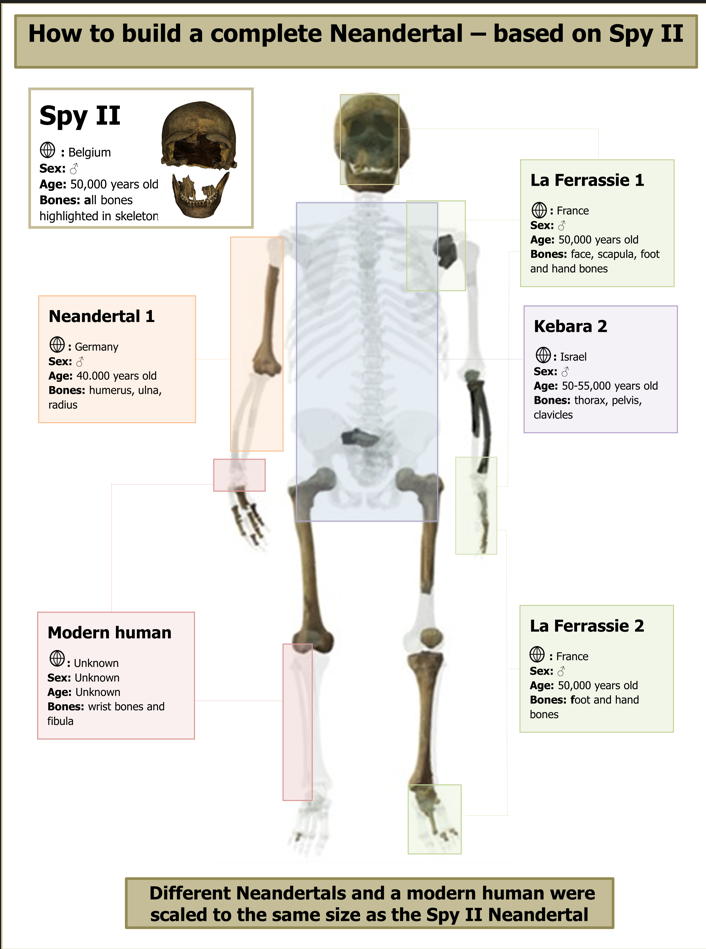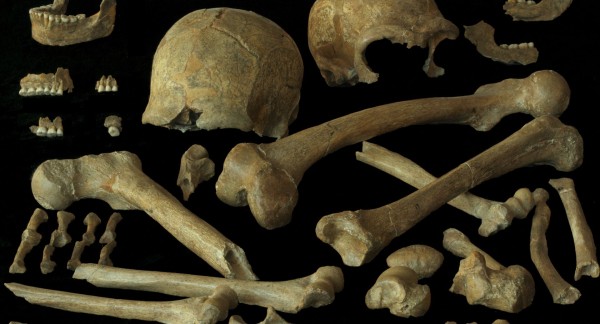Nextgen Anatomy
In progress
01.11.21 → 19.10.31

Technical advances in digitisation to create fossil specimens
Technological advances in digitisation and the development of virtual anthropology/anatomy have opened up new fields of research based on museum collections. This includes the reconstruction of digitized skeletal (muscular) models of living humans and human fossils based on fragmentary remains, followed by morphological and biomechanical analysis of these specimens. This new approach uses the Royal Belgian Institute of Natural Sciences (RBINS) infrastructure (collections and 3D digitization platform) and scientific instruments, as well as advanced biomechanical software for modelling and virtual morphological comparative analysis. RBINS is well known for holding a large collection of Neandertal fossil specimens and one of the tasks in this project has been to reconstruct the Neandertal Spy II skeleton. Different software is used, including the specialised software (lhpFusionBox) developed at the Université Libre de Bruxelles, to process and create multidimensional models of fragmentary fossil specimens and enable these (paleo)anthropological studies. Nextgen Anatomy also examines the differences between fossil hominids and modern humans, as well as the diversity within modern humans themselves. This enables the RBIN’s unique collections to be put to better use, and new teaching aids to be developed for students and the museum.
In addition to research on fossil hominids, the status of the anthropological collections in the Institute is a special one, and we are now witnessing a reflection on the responsibilities, ethics and provenance of collections from the colonial period. There is a political will to examine provenance issues, and to put in place actions to enable restitution. Nextgen Anatomy is also examining this question with a view to the possible role of digitization in the repatriation of the human remains. For further details on repatriation please also see the HOME project.
For further information please contact Tara Chapman or Patrick Semal.
Funding
BELSPO Fed-tWIN program
Partner
Laboratoire d'Anatomie, Biomécanique et Organogénèse, Université Libre de Bruxelles.

Internal members
Other members
- Professor Serge Van Sint Jan




